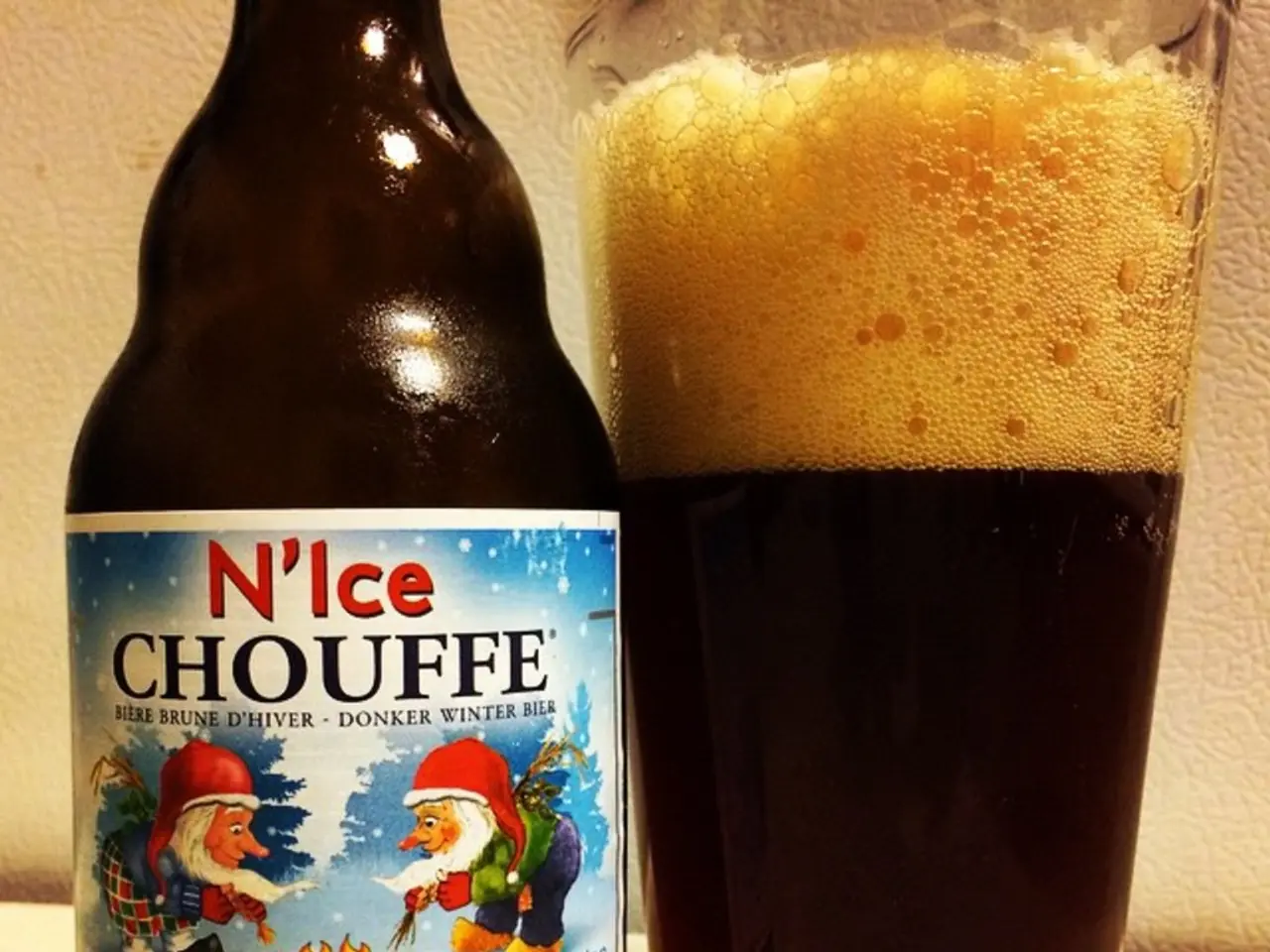Germany sees a peak in sales of non-alcoholic beer
Germany's Beer Market: A Tale of Two Trends
Germany's beer market is witnessing a fascinating transformation, with the production of non-alcoholic beer experiencing significant growth while the production of alcoholic beer is on a slight decline.
According to data from the Federal Statistical Office, the production of non-alcoholic beer in 2023 was approximately 474 million liters, marking a more than doubling since 2013. In contrast, the production of alcoholic beer in 2024 was 7.2 billion liters, a decrease of 14.0% compared to 2014.
The rise in non-alcoholic beer consumption can be attributed to several factors. Health, fitness, mindfulness, and new dietary habits are encouraging alcohol reduction, and innovations in production methods are preserving the aroma and taste in non-alcoholic versions, making them more appealing.
Meanwhile, traditional alcoholic beer volumes are declining slightly or stabilizing. German production remains dominant, making up 22.2% of the entire EU total. However, the EU as a whole has reported a slight increase in traditional beer volume, with a 0.6% increase in 2024 compared to 2023.
In terms of production values, while exact figures for 2024 are not detailed in liters-to-value terms, the growing market share and value of non-alcoholic beer is emphasized globally. Alcohol-free beer grew by 9% in 2024 worldwide and is forecasted to gain substantial market share and value, with a compound annual growth rate (CAGR) of about 8-12% expected from 2019 to 2024.
On the other hand, the production of beer mixed drinks, while not completely alcohol-free, has seen a growth that is significantly lower compared to the growth in the production of non-alcoholic beer. In 2024, around 364 million liters of beer mixed drinks were produced, an increase of 9.3% compared to 2014. However, the growth in beer mixed drinks production was less than the decline in the production of alcoholic beer over the same period and less than the increase in the production of non-alcoholic beer.
The production of non-alcoholic beer in 2024 was worth approximately 606 million euros, six times more than in 2014, while the production of beer mixed drinks in 2024 was worth an undisclosed amount of euros. The ratio of alcoholic beer to non-alcoholic beer production was around 12 liters of alcoholic beer per liter of non-alcoholic beer in 2024, compared to 28 liters in 2014.
In summary, the rise in non-alcoholic beer consumption in Germany is primarily due to evolving lifestyle preferences and improved product offerings, while alcoholic beer remains dominant in volume but faces a slowly declining or stagnant market. The production of beer mixed drinks, while growing, is not keeping pace with the growth in non-alcoholic beer production.
| Type of Beer | Production Volume (Germany 2023-2024) | Growth Trend & Drivers | EU Production Context (2024) | |---------------------|------------------------------------------|-------------------------------------------------------------|------------------------------------------------| | Non-alcoholic Beer | ~474 million liters (2023) | Doubling since 2013; driven by health, fitness, mindfulness | Non-alcoholic beer +11.1% growth in EU; 2 billion liters total | | Alcoholic Beer | 7.2 billion liters (2024) | Slight decline or marginal growth; traditional segment dominant | EU total 32.7 billion liters (above 0.5% ABV); slight increase overall | | Beer Mixed Drinks | 364 million liters (2024) | Growth slower than non-alcoholic beer; less than alcoholic beer | EU data not available |
[1] Federal Statistical Office (Destatis) [2] European Brewery Convention (EBC) [3] IWSR Drinks Market Analysis [4] European Commission [5] Brewers of Europe (CEB)
Science is playing a significant role in the health-and-wellness sector, as innovations in non-alcoholic beer production methods preserve the aroma and taste, making them more appealing for consumers seeking lifestyle changes that prioritize reduced alcohol consumption. The food-and-drink industry is also witnessing a shift, with the production of non-alcoholic beer growing rapidly while traditional beer volumes are declining slightly or stabilizing.




